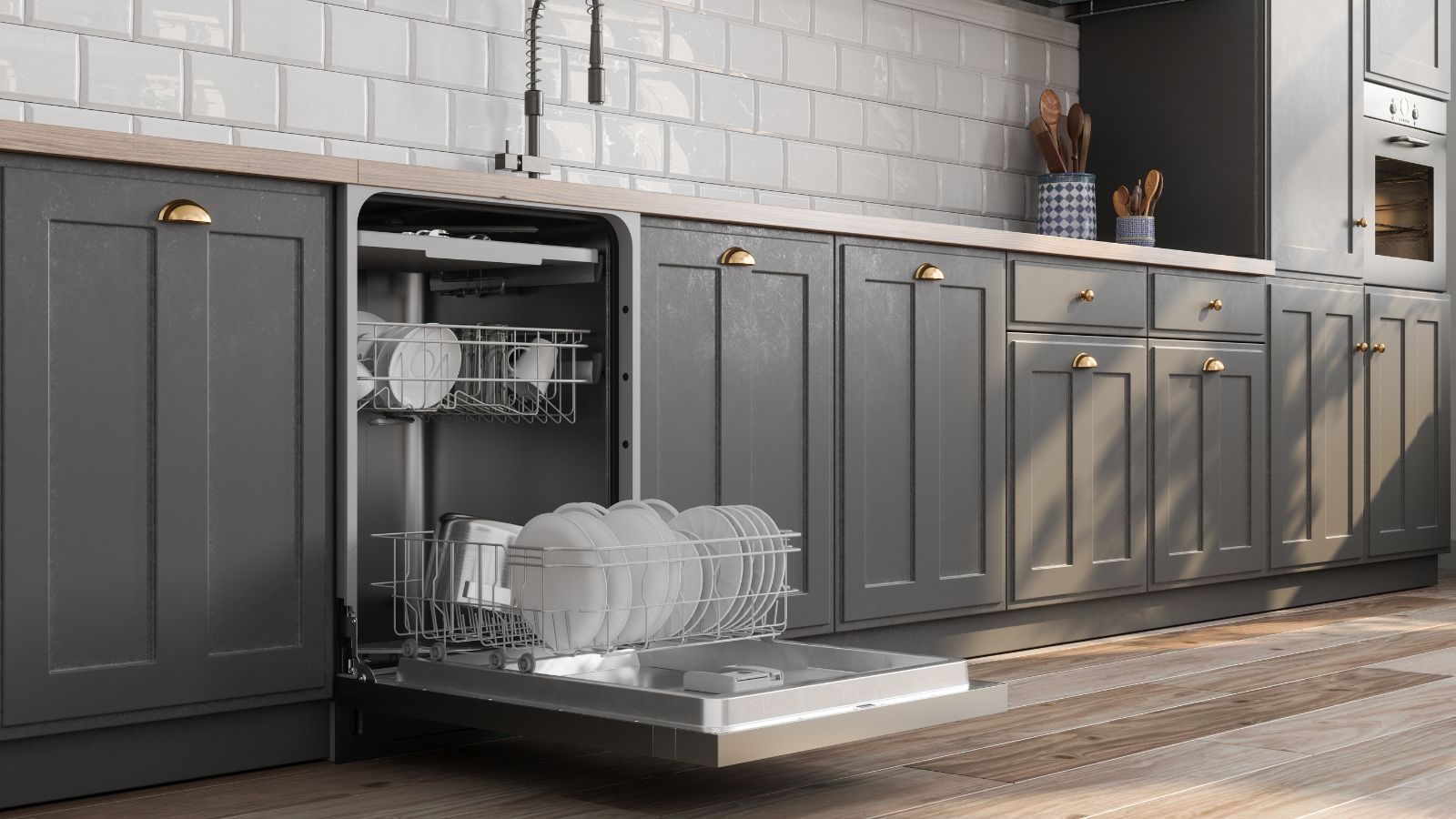
There's no denying that dishwashers work hard. Tackling pots, pans, plates, cutlery and glasses in one cycle, there's no quicker and convenient way to get the job done.
But, what if your dishwasher suddenly stops cleaning your dishes, leaving them speckled in grime and gunk?
Here, professional cleaners explain why this might be happening, how to fix the common causes and share dishwasher maintenance tricks to stop it recurring.
Why is my dishwasher not cleaning my dishes?
1. The filter is clogged
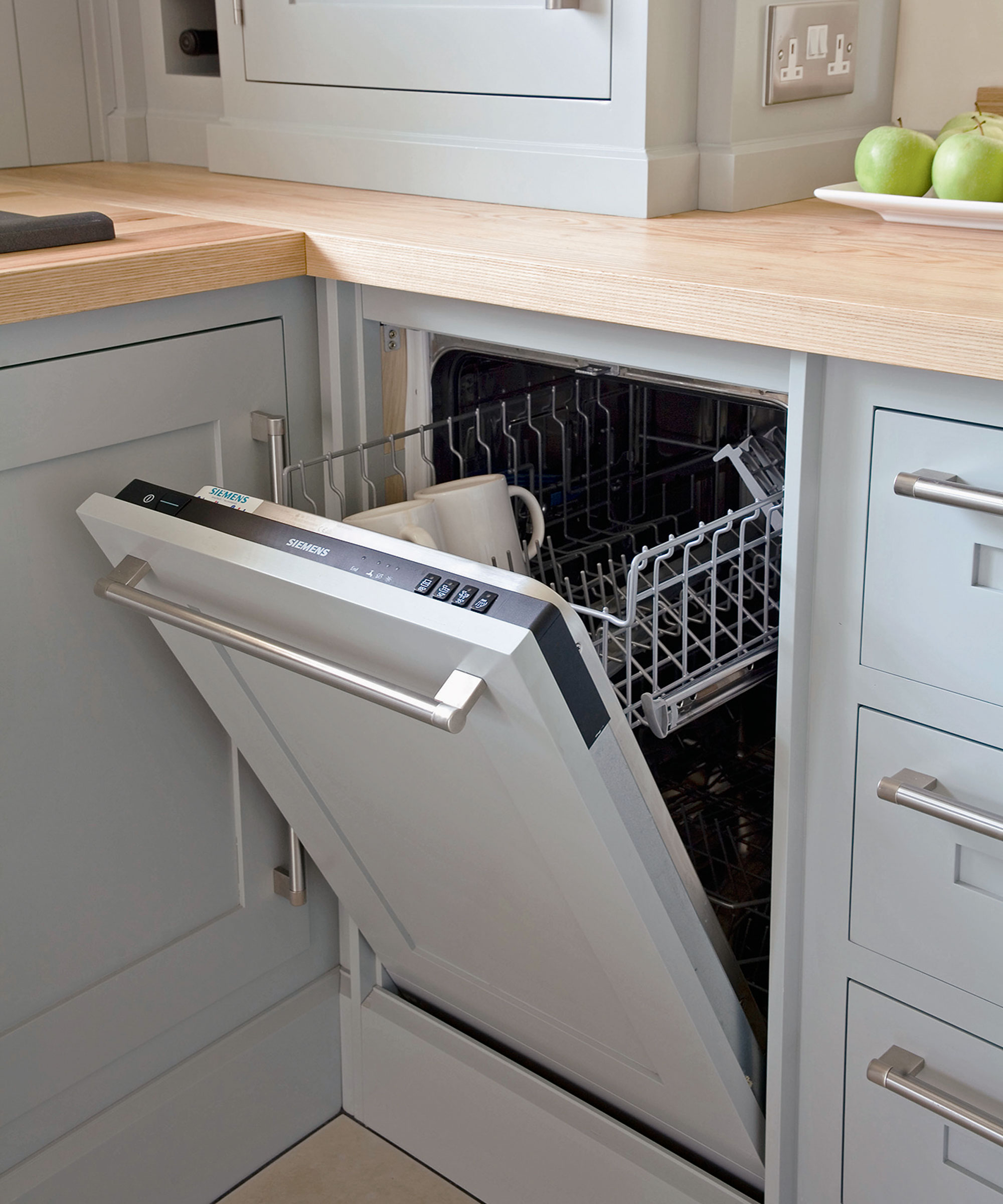
Without a doubt, the main reason your dishwasher isn't cleaning your dishes is that you need to clean the dishwasher filter, as Carolina Kazimierski, co-owner and president of Sophia's Cleaning Service, explains.
'The top reason I tend to see for why a dishwasher might not be cleaning dishes is a clogged or dirty filter,' she says. 'In fact, I've seen lots of homeowners who aren't even aware their dishwasher has a filter they should be cleaning! When this filter gets clogged with food debris, it can no longer do its job, and will instead tend to re-deposit that debris on your dishes. It also starts to smell.'
Luckily, this dishwasher maintenance trick isn't too arduous. First of all, you will need to locate your filter, which is typically situated in the bottom of your appliance, and can easily be pulled free, rinsed, and put back in. This should be done regularly – at least once a month – but if your dishwasher isn't cleaning your dishes properly, chances are yours is in need for a deeper clean.
'A quick rinse and scrub with some soapy water tends to resolve this issue,' continues Kazimierski, using a stiff bristled brush, such as the SetSail Scrub Brush available at Amazon, or an old toothbrush.
Similarly, Karina Toner, cleaning expert and operations manager at Spekless, highlights the importance of cleaning the spray arms in your dishwasher regularly too, recommending that not doing so is a dishwasher mistake best avoided. She says, 'Food particles, grease, or hard water deposits can clog the small holes in the spray arms, reducing water flow and pressure. This restricts water distribution, leading to poor cleaning, especially in areas furthest from the spray arms.'
To combat this, remove the spray arms from your best dishwasher, referring to the manufacturer's manual for guidance. Then, rinse them under warm running water, and use a toothpick or soft brush to clear any blockages, before soaking them in a 1:1 solution of warm water and white vinegar for 15 to 30 minutes, to dissolve any mineral buildup.
To prevent future clogs, Toner recommends taking the time to rinse heavily soiled dishes to reduce the amount of food debris in your machine, and advises cleaning the spray arms monthly.
All prices correct at time of publication.
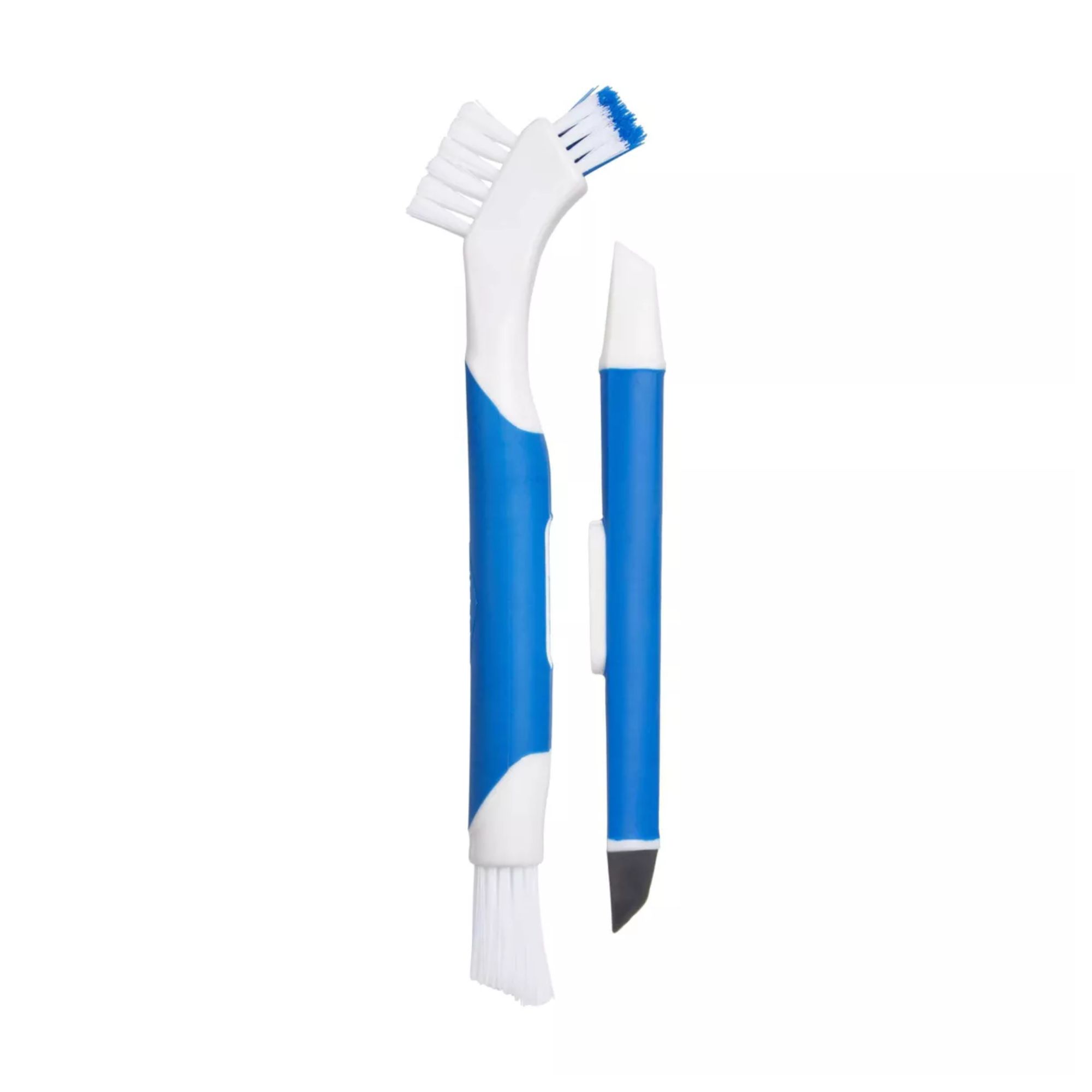
Designed for hard to reach areas, this brush set is ideal for cleaning your dishwasher filter, with a silicone blade, scraper, three types of brushes, and antimicrobial protection.
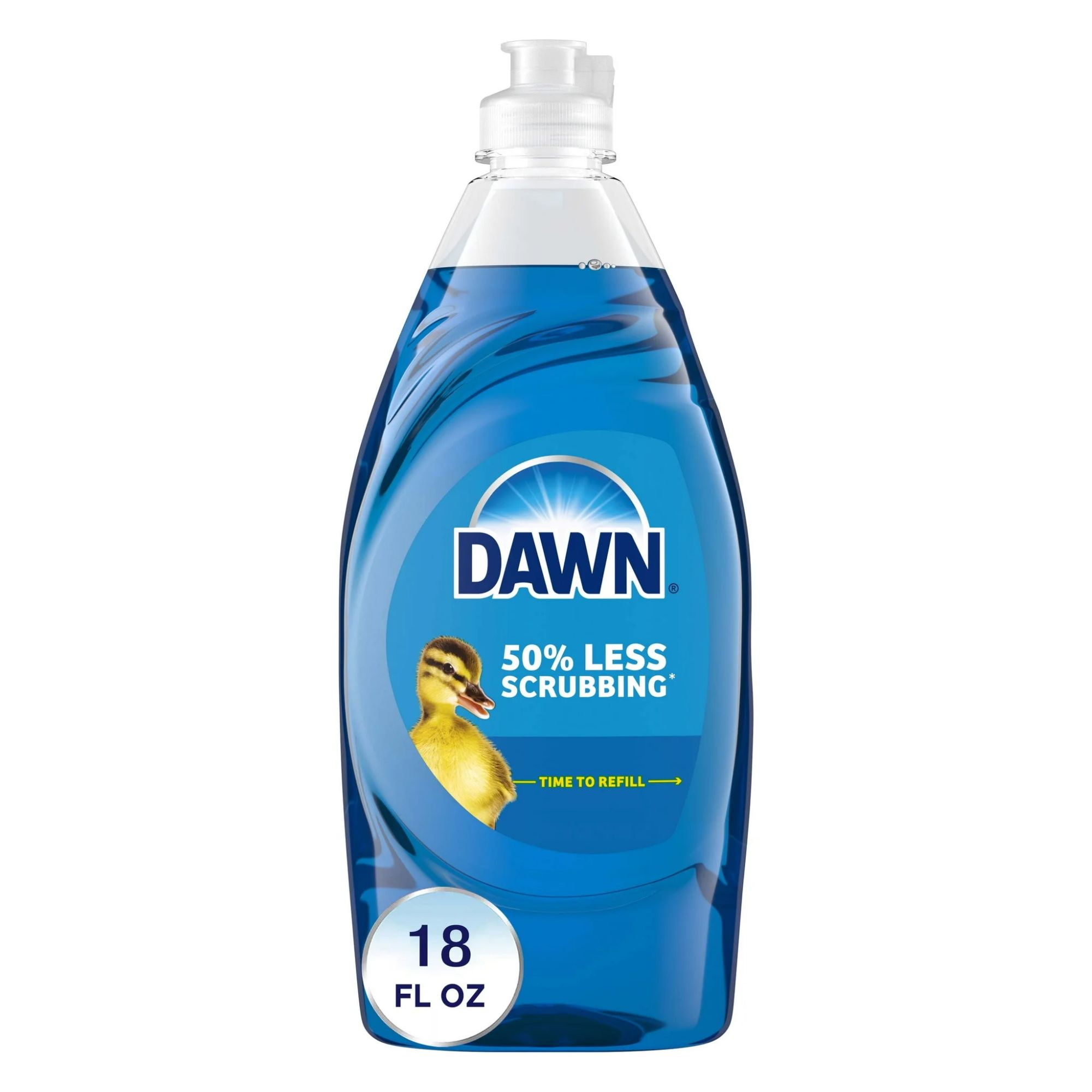
This concentrated dish soap is made with 100% biodegradable surfactants, and can be used throughout the house from cleaning in the kitchen to your laundry room essentials.
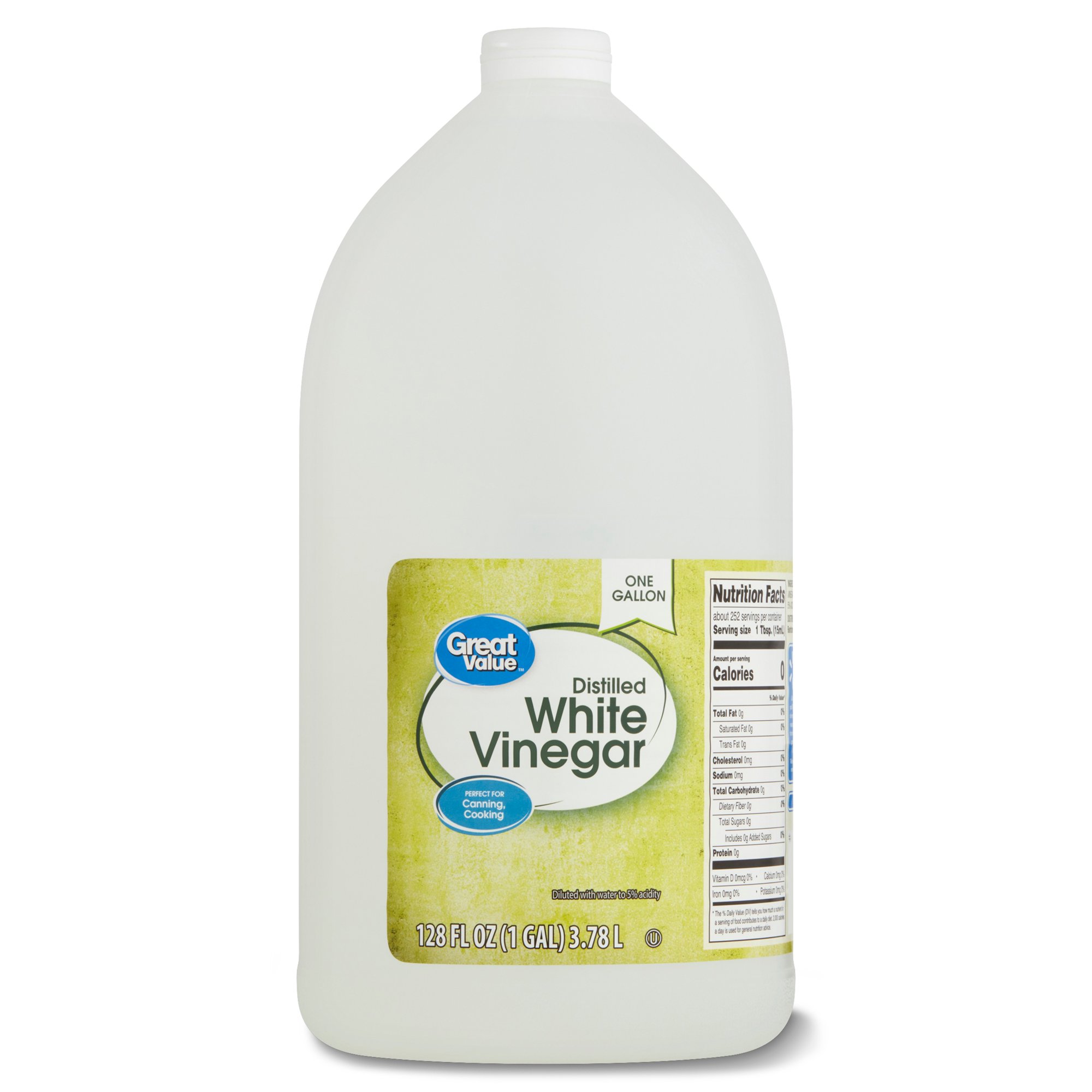
This white vinegar is perfect for all household cleaning, distilled to a 5% acidity to kill bacteria while being gentle on surfaces, meaning it's even suitable for cleaning windows with a homemade vinegar glass cleaner.
2. Your dishwasher isn't loaded optimally

Do you know how to load a dishwasher properly? It might seem neither here nor there, but haphazardly filling your appliance can have a significant effect on the cleanliness of your dishes.
Cleaning expert Toner advises, 'Overloading the dishwasher or blocking the spray arms with improperly placed items can prevent water and detergent from reaching all surfaces. Restricted water flow results in uneven cleaning, leaving dishes greasy or with residue.'
It might shorten the lifespan of your dishwasher, too.
Always load your dishwasher by placing large, flat items such as pans and cutting boards along the sides or back of the bottom rack, recommends Toner, keeping heavier items low. Avoid overlapping dishes and ensure the spray arms can rotate freely, leaving enough space between dishes for water and detergent to circulate freely.
For cutlery, if you're wondering whether you should point your silverware up or down in the dishwasher, always opt for downwards, or you might start spotting signs you need to replace your flatware sooner than necessary.
And, while it might not seem a particularly attractive option, if you have a particularly large pile of dirty dishes that need washing, it's no bad thing to get your rubber gloves on and put our expert tips for washing dishes to use.
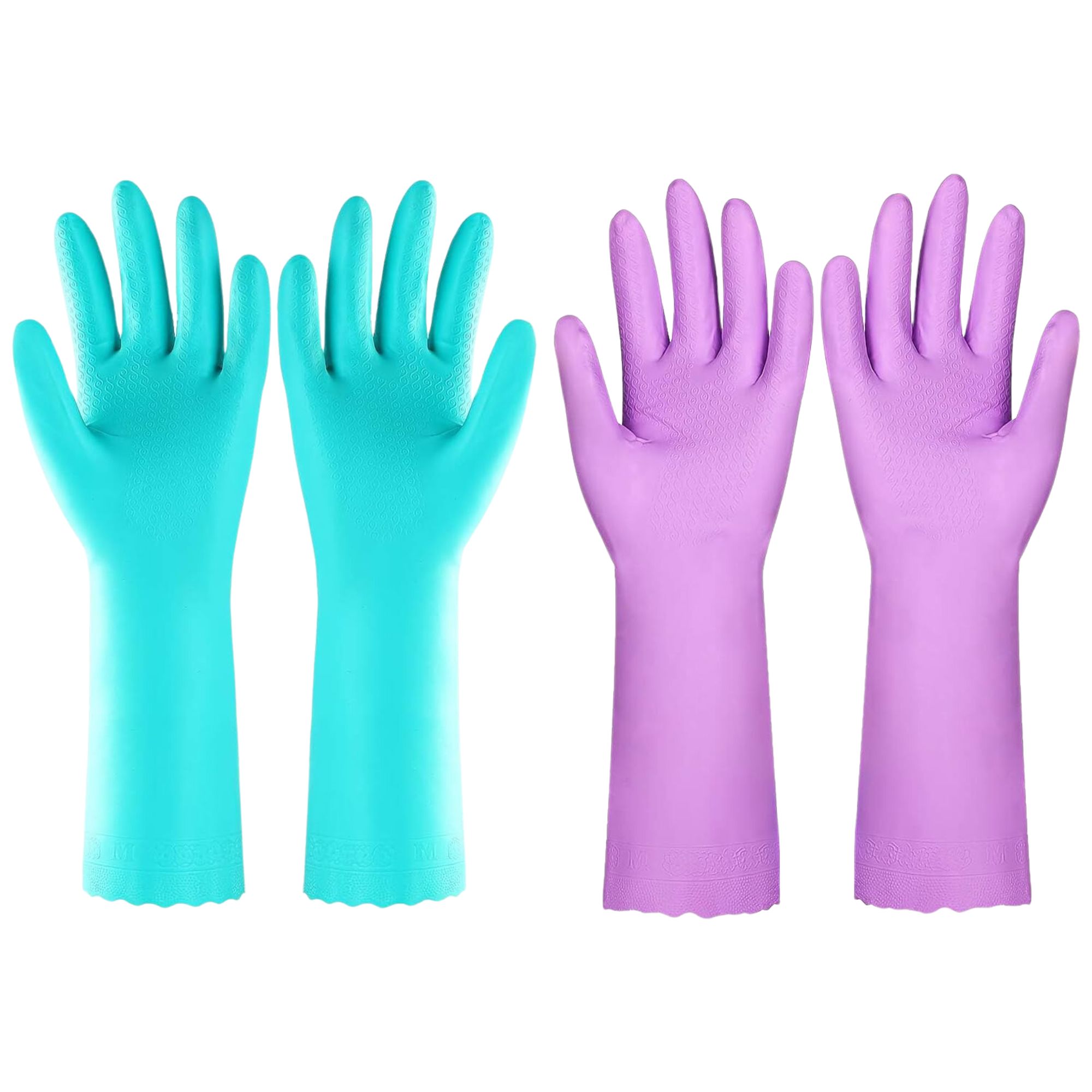
Made of PVC, these eco-friendly cleaning gloves are suitable for cleaning with allergies, with a non-slip design for added comfort and grip.
3. Hardwater deposits
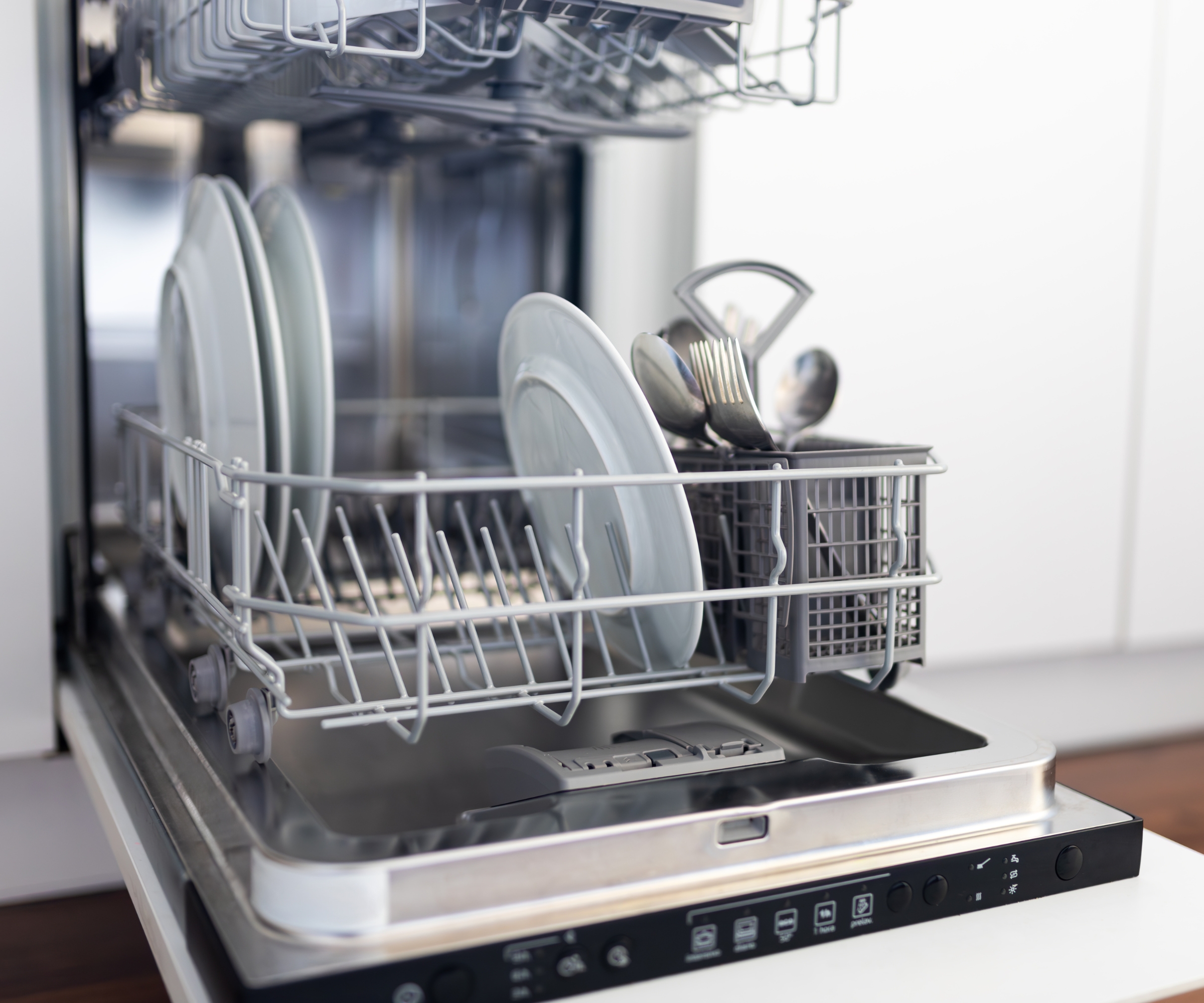
This issue is more difficult to avoid, particularly if you live in a hard water area – but it may be the reason your glasses are going cloudy in the dishwasher, or worse, that your dishwasher isn't cleaning your dishes.
Cleaning expert Toner says, 'Hard water, rich in minerals like calcium and magnesium, can leave behind deposits on dishes and the interior of the dishwasher, reducing its efficiency.'
To resolve this, you can clean your dishwasher with vinegar, by simply pouring one cup of white vinegar, such as the Lucy's Family Owned - Natural Distilled White Vinegar available at Amazon, into a dishwasher-safe bowl, placing it on the top rack. Then, run an empty dishwasher cycle using hot water.
If this doesn't fix the issue, Toner advises that you may need to use a dishwasher cleaner specifically formulated for hard water, such as the Affresh W10549851 Dishwasher Cleaner available at Walmart.
4. Neglecting to use rinse aid
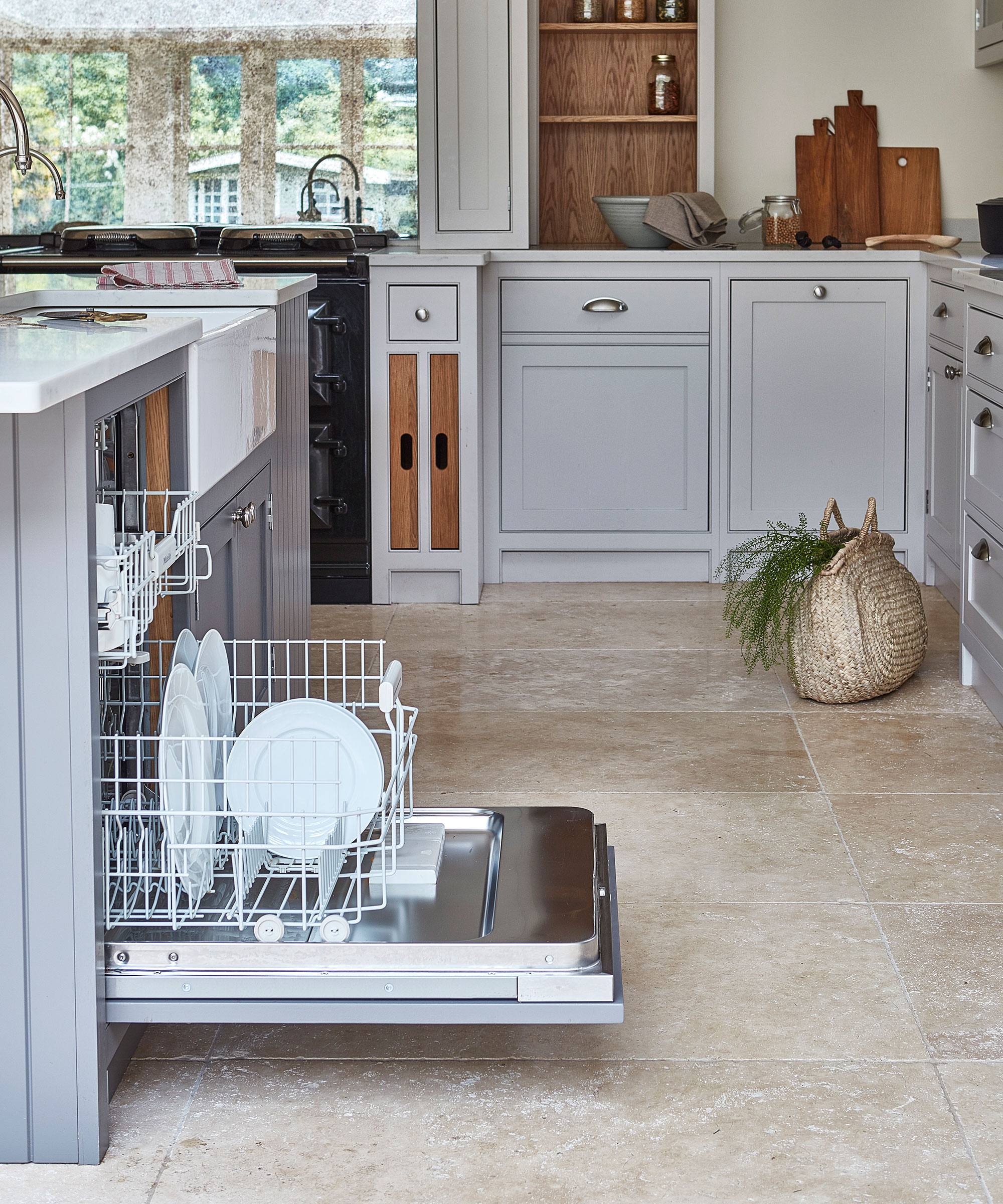
Cleaning expert Kazimierski says, 'Another common reason for dirty dishes after washing is just not using rinse aid,' which could also be one of the unfortunate things making your kitchen smell bad.
'Adding rinse aid is an easy step you can take to help clear up any water spotting or other unsightly issues with your dishes, as it just helps water slide off your dishes more easily, which helps them dry faster and overall look, feel, and smell cleaner after washing in the dishwasher,' she continues.
This will also help to get rid of dishwasher smells, which is why it's one of the things people with nice-smelling kitchens always do. We recommend the Finish Jet-Dry Rinse Aid available at Target, which provides 100% better drying versus detergent alone.
5. Using ineffective or insufficient detergent
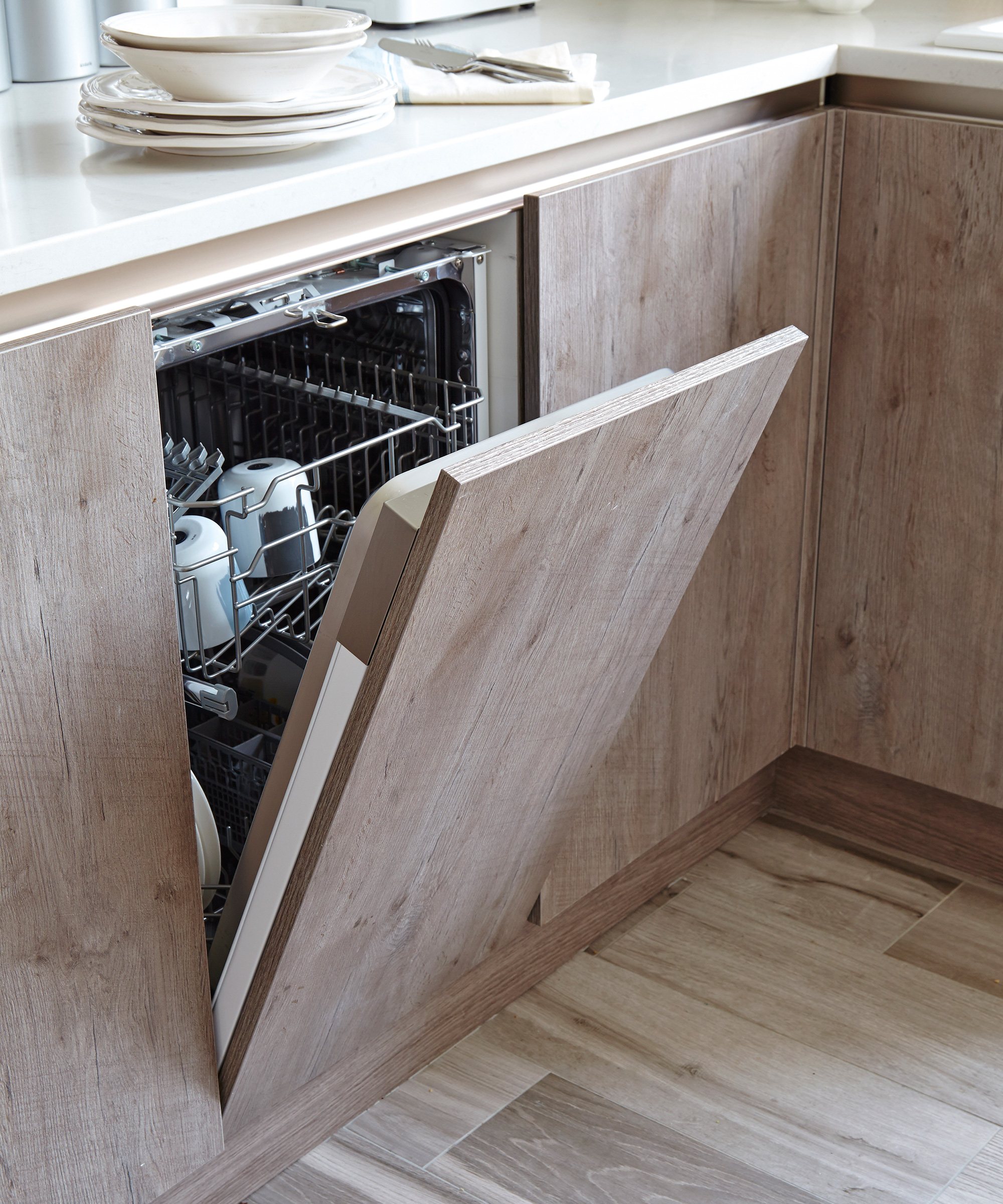
Finally, the reason your dishwasher isn't cleaning your dishes might come down to the simple fact that you are using the wrong dishwasher detergent, or too much or too little in the first place.
Cleaning expert Toner warns, 'Using expired, low-quality, or incorrect detergent can lead to poor cleaning results. Overusing detergent can also cause residue buildup.
'Dishes may come out greasy, cloudy, or with visible food particles. Excess detergent can clog the system over time.'
Ensure you're using a high-quality detergent, such as the Cascade Platinum Dishwasher Pods available at Walmart, designed for your water type, and the correct amount of detergent based on your dishwasher's recommendations. Always store detergents in a cool, dry place, away from any pets or children.
If you find yourself in a pinch, you can make homemade dishwasher detergent, by making use of some of the items you can substitute for dishwasher tablets. But, if you're wondering whether you can put dish soap in the dishwasher, steer clear at all costs – it could cause irreparable damage and even prove fatal for your appliance.
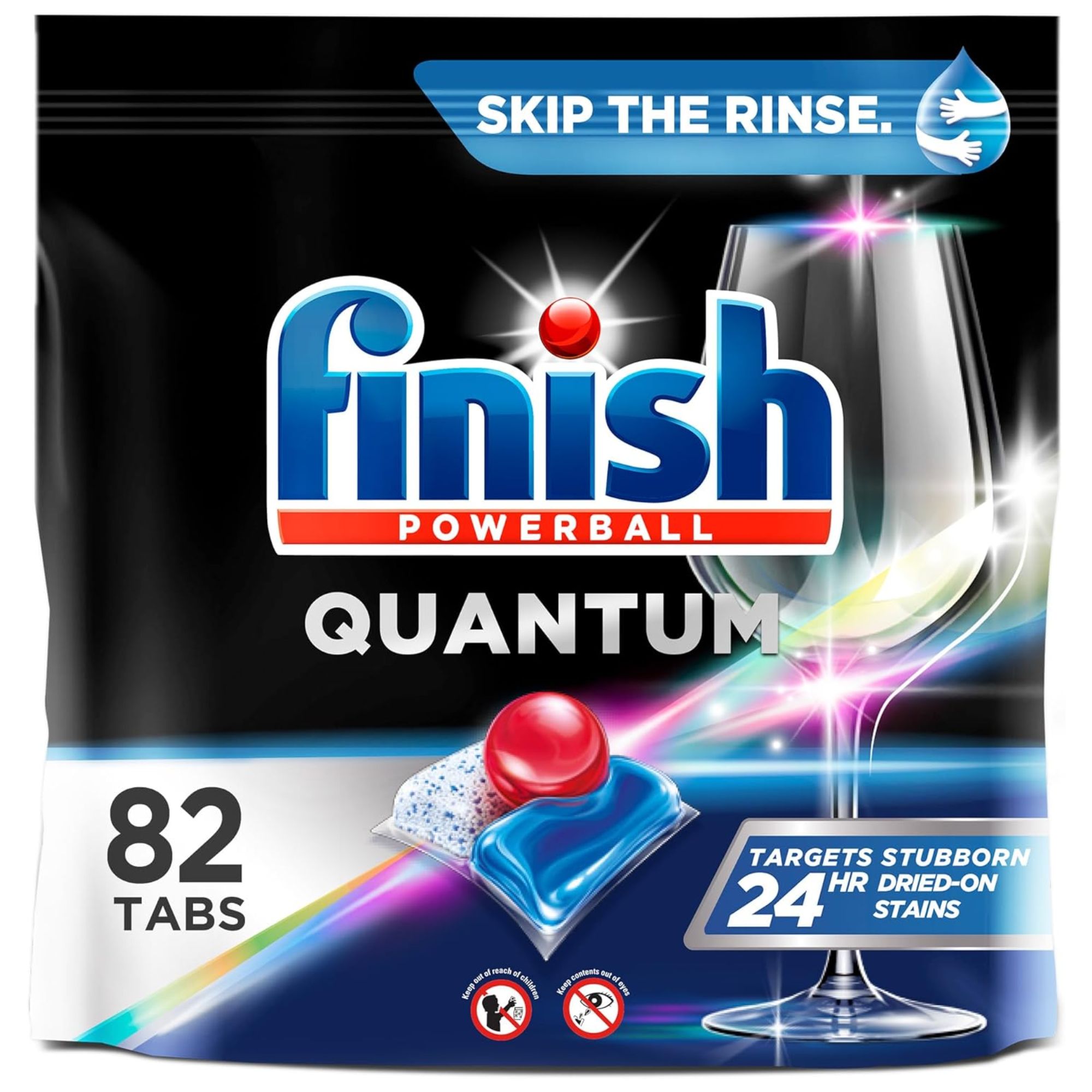
These dishwasher pods scrub, shine and degrease, with three separate, fast-dissolving chambers to deliver three different power actions to cut through even the toughest of dried-on messes.
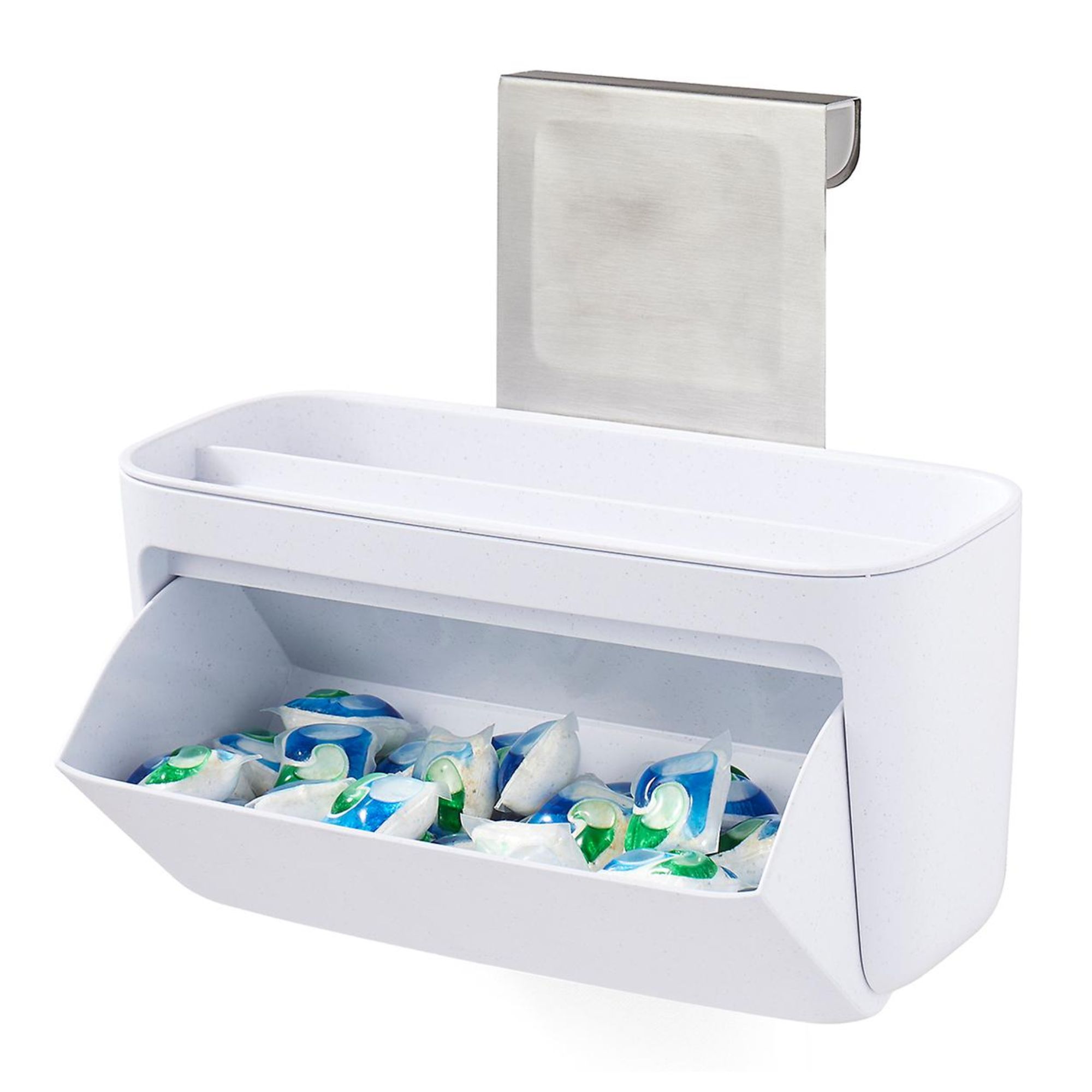
This genius space-saving storage solution holds around 50 dishwasher tablets, with a tool-free, easy installation. It won't be suitable if you have children or pets, though, so opt for something airtight like the Large Capacity Container With Automatic Pop-Up Lid available at Amazon. Keep out of their reach.
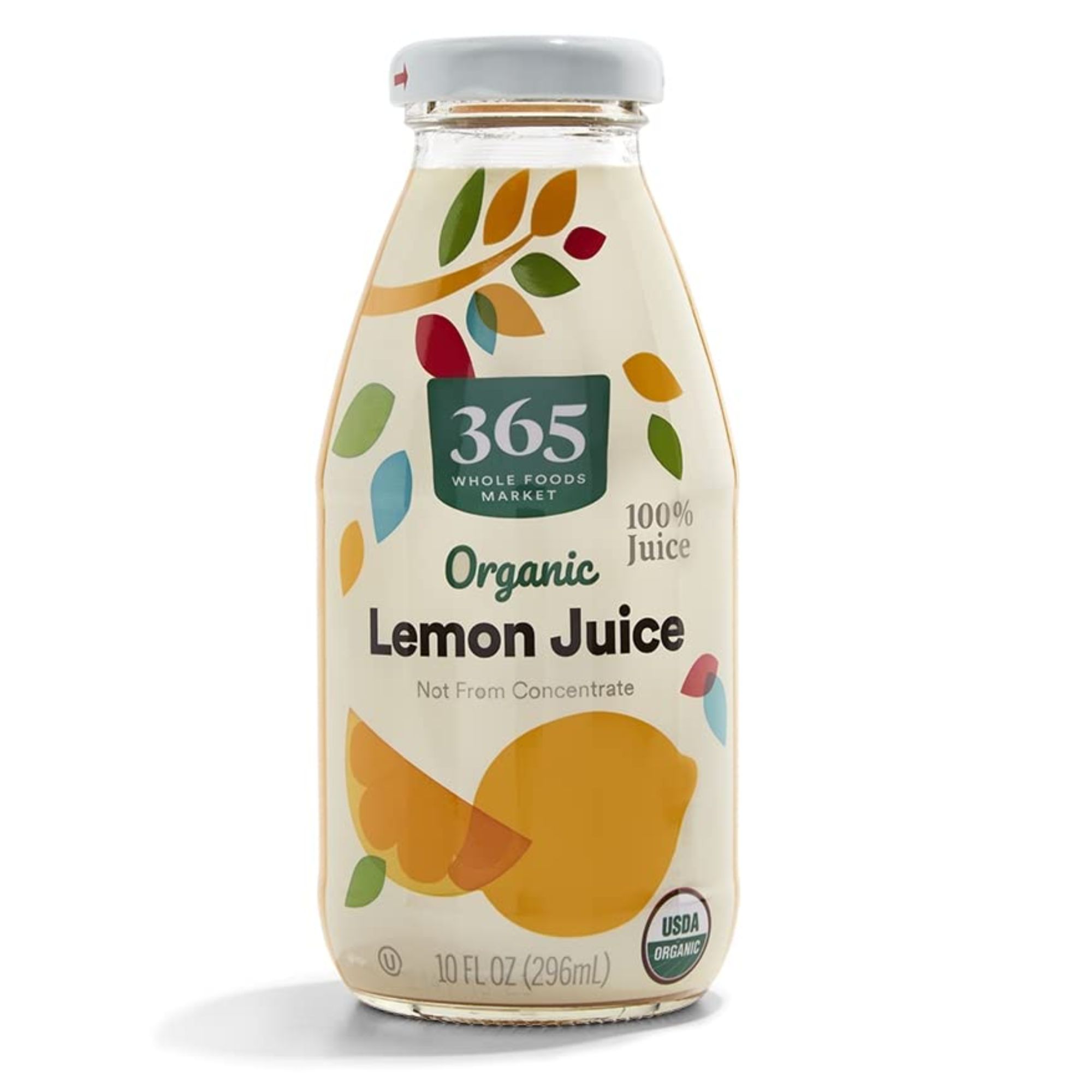
One of the best dishwasher detergent substitutes is cleaning with lemon juice. H&G freelance journalist Rebecca Shepherd tried loading lemons in her dishwasher, and found it 'upped her cleaning game'.
FAQs
How can I tell if my dishwasher needs maintenance?
If you find yourself unsure, cleaning expert Toner recommends you:
- Inspect the dishes: Check whether they are consistently clean and sparkling, or come out dirty, spotted, or with soap residue.
- Check for odors: This is a surefire way of determining whether something is wrong. 'A smelly dishwasher can indicate trapped food or a buildup in the filter or spray arms,' says Toner.
- Watch for leaks: If you spot any water pooling on the floor around your appliance, call a pro as soon as possible. 'This may indicate worn gaskets or clogs,' warns Toner.
- Monitor cycle times: Are cycles taking longer than usual? This may indicate a buildup or malfunction.
- Listen for unusual sounds: If you notice any grinding or rattling sounds, it likely means there is a blockage in the spray arms or pump that needs remedying.
Why is water sitting in the bottom of my dishwasher?
Most commonly, the presence of still water in your dishwasher will, again, be due to a clogged filter, or a result of a blockage in a nearby garbage disposal.
Ensuring you know how to clean a garbage disposal and how to unclog a garbage disposal can help prevent this occuring.
As well as being a staple item for providing an effective deep clean in your dishwasher, these are the surprising things to clean with a dishwasher tablet in your living room, bathroom, and even your garden.



.jpg?w=600)



